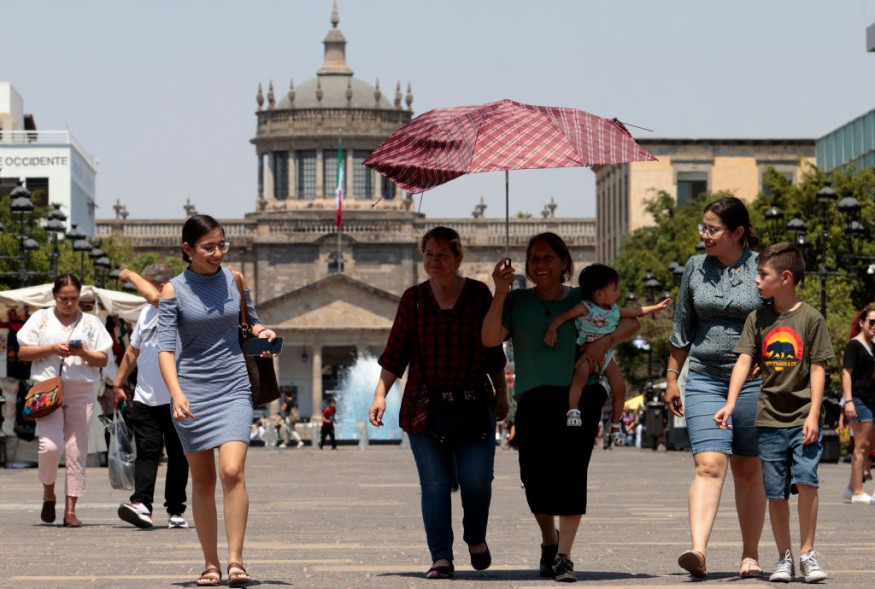Reports revealed that over 48 people casualties have been recorded since March in Mexico due to dangerous heat. Rising temperatures can likely result in heat-related health concerns, such as heat stroke and heat illnesses.
Deadly temperatures can potentially threaten vulnerable populations, particularly older adults, people with medical conditions, and children.
Portions of Mexico are no strangers to hotter temperatures. According to a report, the country has experienced challenging heat, causing power outages and heat waves. The heat has also killed crops and threatened unique animals like the howler monkeys.
Mexico deadly heatwaves: Recent casualties since March

Reports reveal that the heatwaves have been exacerbated due to El Nino impacts. Additionally, the country has suffered from prolonged drought due to warmer temperatures.
Communities without medical conditions are vulnerable to heat waves. In the capital, the temperature has reached over 35 degrees Celsius.
In the recent heatwaves in Mexico, at least 48 people died from the heat since March. Additionally, over 950 people were affected by the rising temperatures. In the San Luis Potosi's northeastern state part, the temperatures reached 49.6 degrees Celsius.
Scorching heat is a public health concern that threatens vulnerable populations and communities without cooling systems. The worsening temperatures can be attributed to El Nino and climate change. Increasing temperatures, exacerbated by global warming, can cause frequent heatwaves and prolonged drought.
Keeping safe from intense heatwaves: How can communities stay safe?
Heat waves are a major concern in Mexico and can become life-threatening. Staying safe from extreme heat is essential to avoid potential heat-related health risks:
- heat stroke
- heat fatigue
Additionally, staying updated with the latest reports is important for people with outdoor or travel plans. When commutes are not necessary, it is advisable to stay at home, until the weather outlook improves.
Limiting outdoor activities is advisable for vulnerable populations. In addition, checking for signs of hypothermia and frostbite is helpful to keep communities aware and safe from extreme heat.
According to a report by the Red Cross, staying hydrated can prevent a risk of heart illnesses. People should keep away from caffeinated products and alcoholic drinks, which can cause potential health risks due to high temperatures.
Homeowners should also anticipate power outages. Storing emergency kits can mitigate the likelihood of heat illnesses, and wearing comfortable clothes under intense heat can offer relief.
Avoiding strenuous tasks is also advisable, particularly in the morning when temperatures are the hottest. Ultimately, parents should always monitor their children, who can likely enter vehicles without notice. Heat-related deaths inside vehicles are also possible, particularly for children and pets.
Related Article: 2024 Wildfire Season in Mexico: Over 100 Intense Blazes Fueled by Dry and Warm Conditions
For more similar stories, don't forget to follow Nature World News.
© 2025 NatureWorldNews.com All rights reserved. Do not reproduce without permission.





